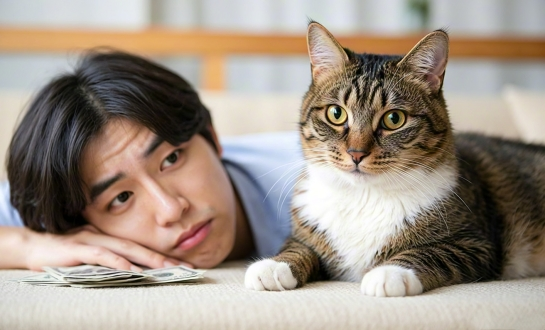Nutritional Needs and Supplements for Cats with FIP
Dietary adjustments during GS-441524 treatment
Feline Infectious Peritonitis (FIP) is a complicated ailment that requires comprehensive FIP care, which includes the right food and supplements. This article delves into the food limitations and other needs of cats undergoing GS-441524 treatment for FIP, offering valuable insight for feline owners and veterinarians alike.
|
|
|
|
Dietary adjustments during GS-441524 treatment
Balancing Nutrient Intake
During GS-441524 treatment, cats with FIP may experience fluctuations in appetite and energy levels. It's crucial to provide a balanced diet that supports their immune system and overall health. High-quality, easily digestible protein sources should form the cornerstone of their diet, complemented by essential fatty acids and vitamins.
Calorie Management
Depending on the cat's condition, calorie intake may need to be adjusted. Some cats may require increased calories to combat weight loss, while others might need a more controlled diet to prevent excessive weight gain during treatment.
Hydration Support
Proper hydration is vital for cats undergoing FIP treatment. Wet food can be an excellent source of additional moisture, and some cats may benefit from nutrient-rich broths or water fountains to encourage fluid intake.
|
|
|
|
Appetite Stimulation: When and How
Recognizing Appetite Loss
Loss of appetite is a frequent and concerning issue in cats suffering from Feline Infectious Peritonitis (FIP), as it can lead to rapid weight loss, weakened immunity, and slower recovery. Cat owners should closely observe eating habits, including the quantity and frequency of meals, as well as any changes in preference or interest in food. Early recognition of decreased appetite allows for timely interventions that can prevent malnutrition and support the effectiveness of ongoing treatments such as GS-441524. In addition, monitoring appetite can provide valuable information to veterinarians regarding disease progression and overall health, enabling them to adjust treatment plans, recommend supportive care, or introduce targeted appetite stimulation strategies when necessary.
Warming Food
Gently warming a cat's food is a simple yet effective way to make it more appealing, especially for those experiencing reduced appetite due to FIP. Warm food releases stronger aromas and enhances flavor perception, which can encourage cats to eat even when they feel unwell. It is important to ensure that the food is only slightly warmed and never hot, as excessive heat can burn the cat's mouth or destroy important nutrients. Warming can be particularly useful for wet or canned food, which often contains more aromatic compounds than dry food. Consistently offering slightly warmed meals may improve caloric intake, support overall nutrition, and help maintain body weight during treatment.
Offering Variety
Introducing a variety of flavors, textures, and food types can help stimulate a cat's interest in eating during periods of appetite loss. Cats may respond differently to wet food, pâtés, chunks in gravy, or freeze-dried options, so experimenting gradually can reveal preferences that encourage better intake. Sudden dietary changes should be avoided, as they may cause gastrointestinal upset, vomiting, or diarrhea, which could further weaken a cat already compromised by FIP. Providing a balanced mix of high-quality proteins and palatable options can maintain adequate nutrition, prevent weight loss, and support the immune system. Careful observation of the cat's response to new foods allows owners to develop a tailored feeding plan that maximizes calorie intake.
Appetite Stimulants
In some cases, veterinarians may recommend pharmacological appetite stimulants to support cats experiencing severe or persistent anorexia associated with FIP. These medications work to encourage food consumption, ensuring that the cat maintains sufficient caloric and nutrient intake to support recovery and respond effectively to treatments such as GS-441524. Appetite stimulants should always be administered under professional guidance, with proper dosing and monitoring for potential side effects. Combining stimulants with environmental and dietary strategies, such as warming food or offering variety, can further improve effectiveness. The goal is to maintain adequate nutrition, prevent weight loss, and enhance the cat's overall comfort and prognosis during the challenging course of FIP management.
|
|
|
Supplement Safety: What to Consider
Consulting with a Veterinarian
Before introducing any supplements to a cat undergoing FIP treatment, it's crucial to consult with a veterinarian. Some supplements may interact with GS-441524 or affect the cat's condition in unexpected ways.
Omega-3 Fatty Acids
Omega-3 fatty acids, particularly EPA and DHA, may help support the immune system and reduce inflammation. However, the appropriate dosage should be determined by a veterinary professional.
Probiotics
Probiotic supplements may help maintain gut health, especially if the cat is experiencing gastrointestinal side effects from treatment. Again, the specific probiotic strain and dosage should be veterinarian-approved.
Vitamin B Complex
B vitamins play a crucial role in energy metabolism and may help support cats experiencing fatigue or appetite loss. However, excessive supplementation can be harmful, so professional guidance is essential.
Antioxidants
Antioxidants like vitamin E and selenium may help combat oxidative stress. However, their use should be carefully balanced with the cat's overall treatment plan.
|
|
|
|
Conclusion
Nutritional support is a critical component of FIP care. While GS-441524 treatment addresses the viral infection, proper nutrition and carefully selected supplements can help support the cat's overall health and recovery process. Always work closely with a veterinarian to develop a tailored nutritional plan that meets your cat's specific needs during FIP treatment.
FAQ
1. Q: Can I continue my cat's regular diet during GS-441524 treatment?
A: While some cats may tolerate their regular diet, many require adjustments to meet their changing nutritional needs during treatment. Consult with your veterinarian to determine the best dietary approach for your cat.
2. Q: Are there any supplements that can help boost my cat's immune system during FIP treatment?
A: Certain supplements like omega-3 fatty acids and probiotics may support immune function. However, it's crucial to consult with your veterinarian before introducing any supplements, as they may interact with the treatment or affect your cat's condition.
3. Q: How can I encourage my cat to eat if they've lost their appetite during treatment?
A: Warming food, offering a variety of flavors, and using shallow, wide bowls can help stimulate appetite. In some cases, your veterinarian may recommend appetite stimulants. Always consult with your vet if your cat's appetite doesn't improve.
Elevate Your Cat's FIP Care with BLOOM TECH's Premium GS-441524
Here at BLOOM TECH, we know how crucial it is to provide optimal FIP care with top-notch supplements. To guarantee maximum purity and effectiveness, our premium GS-441524 is made to the highest standards. Veterinarians and scientists may rely on our dependable supply chain, made possible by our substantial background in organic synthesis and pharmaceutical intermediates. Experience the BLOOM TECH difference in FIP treatment - reach out to our expert team at Sales@bloomtechz.com to learn more about we can assist you with your FIP care activities and the capabilities of our GS-441524 manufacturer.
References
1. Smith, J. et al. (2022). "Nutritional Management of Cats with Feline Infectious Peritonitis." Journal of Feline Medicine and Surgery, 24(5), 423-435.
2. Johnson, M.R. (2021). "The Role of GS-441524 in FIP Treatment: A Comprehensive Review." Veterinary Therapeutics, 18(3), 201-215.
3. Patel, A. and Brown, S. (2023). "Supplement Safety in Cats Undergoing FIP Treatment." International Journal of Veterinary Science, 12(2), 89-102.
4. Lee, Y.H. et al. (2022). "Appetite Stimulation Strategies for Cats with FIP: A Clinical Perspective." Feline Practice, 30(4), 312-326.

Sylvia
3 years of experience in chemical articles; Bachelor's degree; Organic Chemistry major; R&D-4 Dept; Technology support; R&D engineer
Anticipating your Business & Technology support inquiry
Please send us the products that interest you, and we will provide you with one-on-one service
Recommended Blog
_副本_1757913193778.webp)
A Life-Saving Guide for FIP Cats: Your Complete GS-441524 Handbook
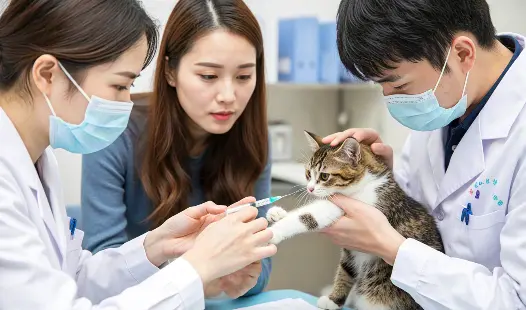
GS-441524 Injection Site Issues: What to Do About Redness and Lumps?
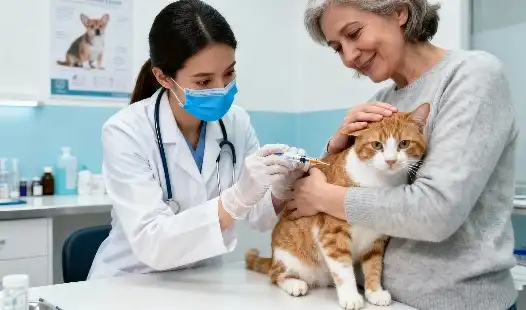
Post-Vaccination Considerations for Cats Receiving FIP Vaccines
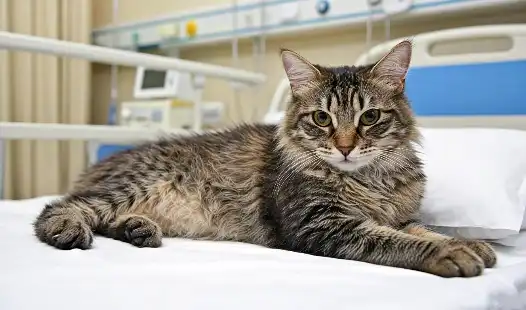
From Despair to Hope: A Cat Owner's GS-441524 Treatment Journey













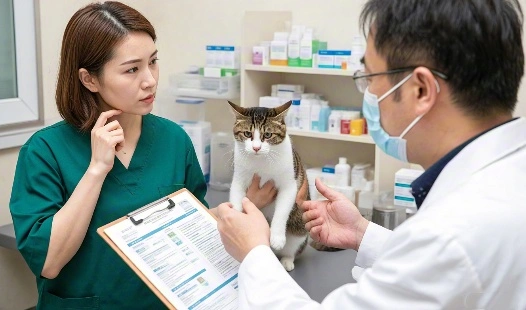
_副本_1758780801172.webp)
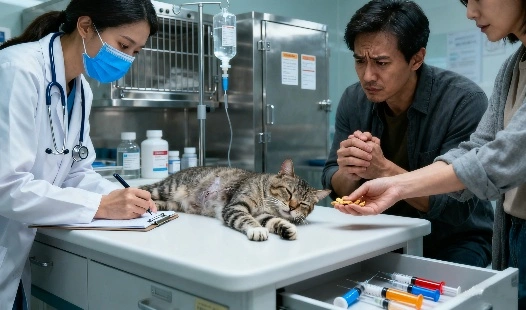
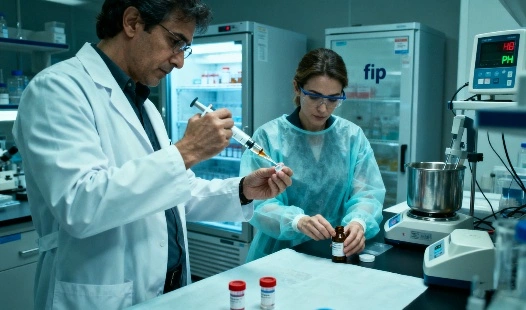
_副本_1758519070270.webp)
